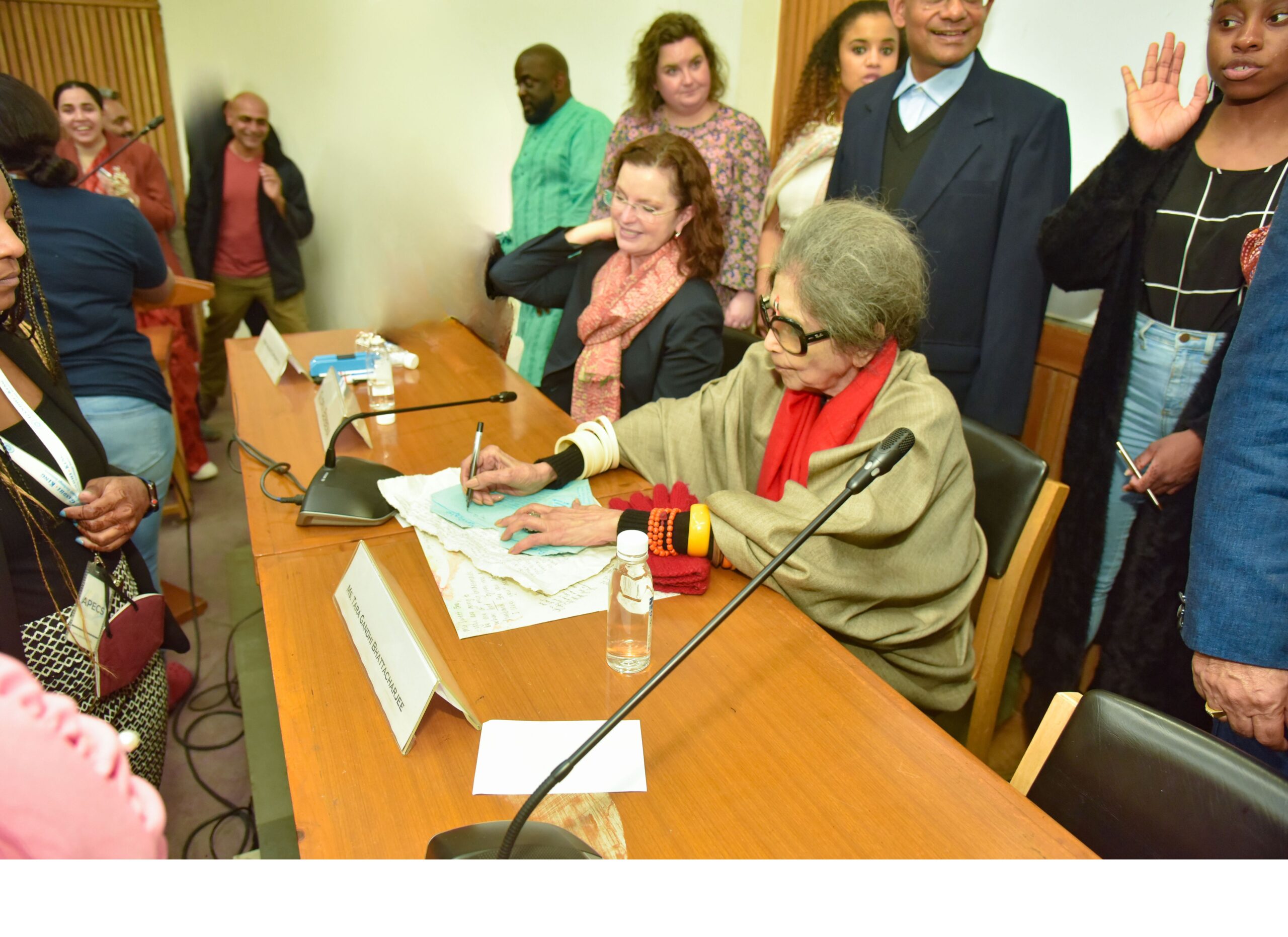Insights from Kratika Vyas’ Session at the Gandhi-King Scholarly Exchange Initiative
On January 11th, 2024, the Nizwan Hall at The Taj Palace Hotel, New Delhi, was the venue for a deeply impactful session led by Kratika Vyas, an esteemed officer from the Madhya Pradesh Public Service Commission. This session was part of the Gandhi-King Scholarly Exchange Initiative’s – India Residency and, focused on pivotal issues related to women’s health, child development, and education in India’s remote villages. Discussion covering her extensive experience, Ms. Vyas provided a comprehensive overview of the Women and Child Development Services (WCDS), a critical initiative launched by the Ministry of Women & Child Development.
Women and Child Development Services (WCDS): A Comprehensive Approach
Launched on October 2nd, 1975, WCDS has been a cornerstone in addressing the multifaceted challenges faced by women and children, particularly in rural and remote areas of India. Kratika Vyas emphasized the program’s evolution into an umbrella initiative, encompassing various schemes aimed at improving the health and nutritional status of children, reducing mortality and malnutrition, and laying the foundation for holistic child development.
Key Objectives of WCDS:
- Nutritional and Health Improvement: WCDS aims to enhance the nutritional and health status of children aged 0-6 years. This is achieved through supplementary nutrition provided for 300 days a year. Monthly weigh-ins and consistent monitoring using tools like the Poshan Tracker ensure the children’s growth is tracked meticulously.
- Developmental Foundation: The program seeks to lay a robust foundation for the psychological, physical, and social development of children. Through non-formal preschool education, children are prepared for formal schooling, fostering holistic growth.
- Reduction in Health Risks: By focusing on critical interventions like immunization, health check-ups, and deworming, WCDS reduces the incidences of mortality, morbidity, and malnutrition, directly addressing the health risks that plague rural communities.
- Empowering Mothers: WCDS also plays a vital role in enhancing mothers’ capabilities to care for their children’s health and nutritional needs. This is facilitated through targeted nutrition and health education, ensuring mothers are well-equipped to support their families.
- Protection Against Violence: The program offers services aimed at assisting and protecting women and children from violence, ensuring a safe environment for their growth and development.
Umbrella WCDS: Diverse and Impactful Initiatives
Kratika Vyas highlighted the various schemes under the Umbrella WCDS, each contributing to the welfare of women and children:
- Anganwadi Services Scheme: Provides a range of services, including supplementary nutrition, health check-ups, and preschool education.
- Pradhan Mantri Matru Vandana Yojana: A maternity benefit program offering financial support to pregnant and lactating mothers.
- National Creche Scheme: Daycare facilities for the children of working mothers.
- POSHAN Abhiyaan: Aimed at improving nutritional outcomes for children, pregnant women, and lactating mothers.
- Scheme for Adolescent Girls: Focuses on the holistic development of adolescent girls through nutrition, education, and life skills.
- Child Protection Scheme: Ensures the safety and well-being of children in vulnerable situations.
- Laadli Lakshmi Yojna: Promotes the education of girl children by providing financial assistance.
Impact on Remote Villages
Vyas shared real-life examples of how these initiatives have transformed lives in remote villages. Through innovations such as toy libraries in Anganwadi centers, the introduction of iron-rich cookware to combat anemia, and the establishment of self-help groups for women, these programs have not only improved health outcomes but have also empowered women economically and socially.
Conclusion
Kratika Vyas’ session was a powerful reminder about the importance of sustained efforts in supporting the health, development, and education of women and children in India’s remote villages. The insights she provided during this session will undoubtedly inspire the participants of the Gandhi-King Scholarly Exchange Initiative to contribute meaningfully to these ongoing efforts. As India continues its development journey, the programs under WCDS remain a beacon of hope, ensuring that no woman or child is left behind.




